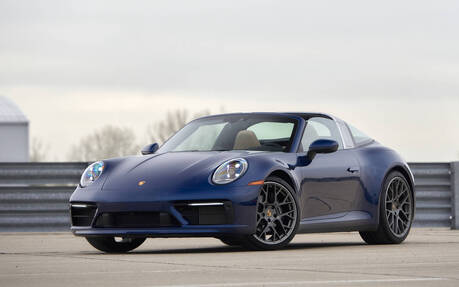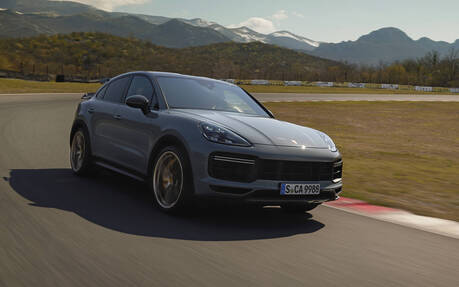Confirmed: Porsche Cayenne to Go Electric, Larger SUV Also Coming
While discussing its 2022 earnings on Monday, Porsche provided more details about its future electric vehicles and reiterated its goal of selling more than 80 percent EVs by 2030.
Following the electric Macan in 2024 (development has been slowed down by software issues), as well as the battery-powered 718 Boxster and 718 Cayman a year later, Porsche will launch the next-generation Cayenne with an electric powertrain, possibly in 2025 or 2026.
- Also: 2024 Porsche Cayenne to Offer All-New Cockpit, Passenger-Side Display
- Also: 2024 Porsche Cayenne is Improved in Seemingly Every Way
By the way, the current Cayenne will benefit from “one of the most comprehensive upgrades in our history" in 2023 (for the 2024 model year), the German automaker confirmed. Look for a new chassis and plug-in hybrid powertrains enabling longer zero-emission range.

As we previously reported, Porsche is simultaneously working on a larger SUV that will slot above the Cayenne. Codenamed “K1” and designed primarily for North America and China, this new flagship will be fully electric, too, although based on a different architecture called SSP Sport. The company said it will offer "strong performance, automated driving functions and a completely new experience inside."
Hybrid 911 Also Confirmed
We now know for sure that a plug-in hybrid 911 is coming, as well. Excited? You should be. Volkswagen Group CEO Oliver Blume certainly is.
“We were able to test it in detail last year, and we are quite thrilled about the drivability and the handling on the car,” he said. “We believe there's a big future in store for it."
So, when will we see this electrified 911 on the road? Blume stopped short of revealing the answer or specifying which models will get the hybrid treatment. He did insist once more on the fact that a fully electric 911 is not part of the plan and that Porsche will keep making conventionally powered 911s “for as long as possible.”

e-Fuels Beyond 2035
Last week, Germany stalled the European Union's plan to ban the sale of cars powered by an internal-combustion engine in 2035 and instead requested a move to allow synthetic fuels a.k.a. “e-fuels” even beyond the middle of next decade.
Of course, this is exactly what Porsche wants. In 2022, the automaker set up an e-fuels pilot plant with partners in Chile. Production has been running since December.
“With this, we have demonstrated that e-fuels can be produced on an industrial scale,” Blume noted.
Opponents, however, claim that e-fuels are an extremely costly and energy-consuming solution that does not even eliminate nitrogen oxides (NOx). Who’s going to have the last laugh? We won’t find out anytime soon.
